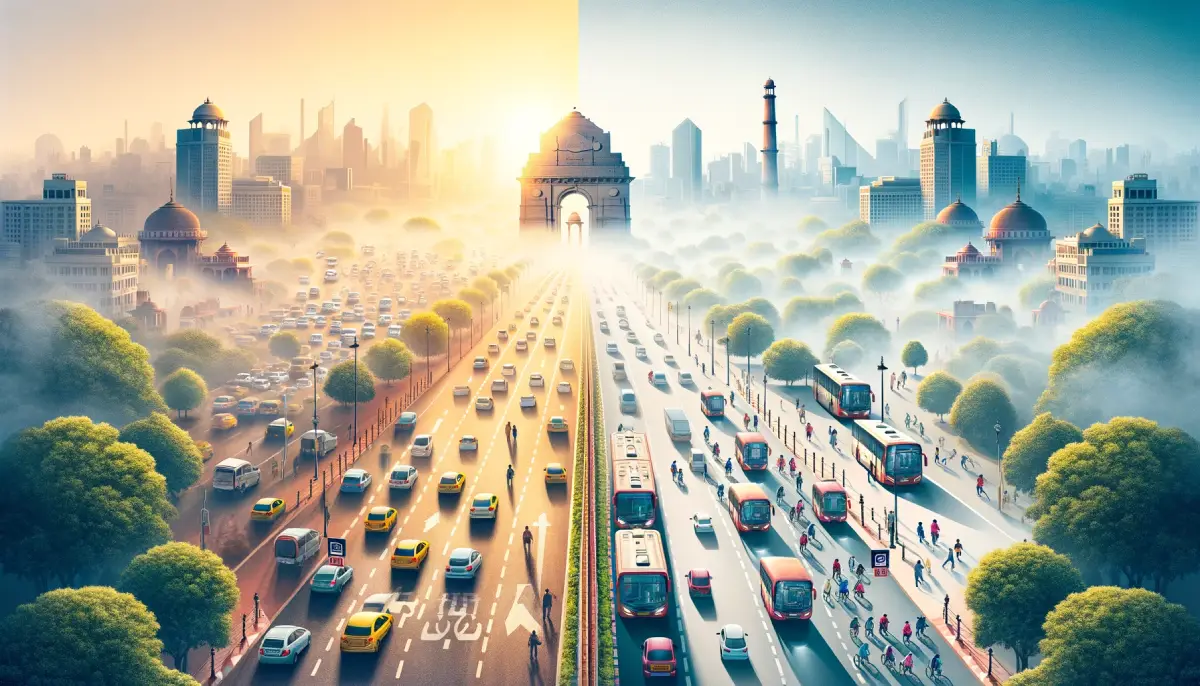

As autumn colors the leaves in Delhi, the city prepares to paint its streets with an innovative approach to clear the air. From November 13 to 20, 2023, Delhi will witness the return of the odd-even vehicle rule—a bold move to cut through the smog that shrouds the city's skyline. This initiative allows cars with odd-numbered plates to grace the roads on odd dates, while even-numbered plates will have their turn on even dates.
This isn't Delhi's first dance with the odd-even system. Cast back to 2014, and you'll find the roots of this initiative, which brought a 10% drop in the menacing PM2.5 levels, according to the Centre for Science and Environment. It's a testament to the city's resilience and commitment to reclaiming its blue skies.
The rule carves out exceptions for the lifelines of the city—electric and hybrid vehicles, CNG-run transports, and those serving essential services like ambulances and fire engines. It also extends a courteous exemption to vehicles driven by women, senior citizens, and individuals with disabilities, acknowledging their unique needs.
Delhi's air quality has been flirting with danger, with PM2.5 levels often breaching the 'safe' threshold. The odd-even rule is a response to this environmental SOS, a strategy to alleviate the city's burden of pollution.
Also Read:- Top Polluting Cars of India
The odd-even rule isn't just about regulating traffic—it's about envisioning a healthier Delhi. The anticipated benefits are multifold:
Clearer Skies: A reduction in the number of vehicles is expected to lower pollution levels.
Healthier Lives: Improved air quality means a lower health risk for Delhi's denizens.
Smoother Rides: Fewer cars on the road can lead to less congestion and a more pleasant commute.
Yet, the road to cleaner air isn't without its bumps. The odd-even rule has its critics, who point out the inconvenience to daily routines and question its long-term impact on pollution. There's a concern that the rule might just shuffle the problem, with people choosing to drive on alternate days.
To steer the odd-even rule towards success, a holistic approach is needed:
Expanding Exemptions: Carefully increasing exemptions can help address the needs of more residents.
Boosting Public Transport: A stronger public transport network can offer a reliable alternative to personal vehicles.
Promoting Carpooling and Cycling: Encouraging these practices can reduce the number of vehicles and foster community spirit.
Investing in the Future: Accelerating the shift to electric vehicles can pave the way for sustainable urban mobility.
The odd-even rule is a chapter in Delhi's larger narrative of battling air pollution. It's a short-term solution with an eye on the long-term goal of a cleaner, greener capital. The government's vision extends beyond these eight days, with efforts to enhance public transportation and embrace cleaner technologies.
Also Read:- What Are The BS3, BS4 and BS6 Emission Standards?
The Delhi government will be implementing the Odd-Even rule from November 13 to November 20, 2023, as a measure to control vehicular pollution in the city. This rule mandates that vehicles with odd and even registration numbers are allowed on the roads on alternate days, based on the date. This initiative, first introduced in 2016, will be active for a week, but may be extended if there is no improvement in Delhi's Air Quality Index (AQI) during this period.
Here's a detailed breakdown of the exceptions and specifics related to the Odd-Even rule:
Exempted Vehicles: Various vehicles are exempted from this rule, including:
It is important for those traveling to or within Delhi during this period to be aware of these rules and plan their commutes accordingly to avoid any inconvenience or fine.
Also Check:- E Challan Delhi
Timing: The rule is operational from 8:00 AM to 8:00 PM, giving the city a daily dose of respite from pollution.
Weekend Respite: The rule takes a break on weekends, allowing for unrestricted mobility.
Stay Informed: For updates and detailed information, the Delhi Transport Department's website is your go-to resource.